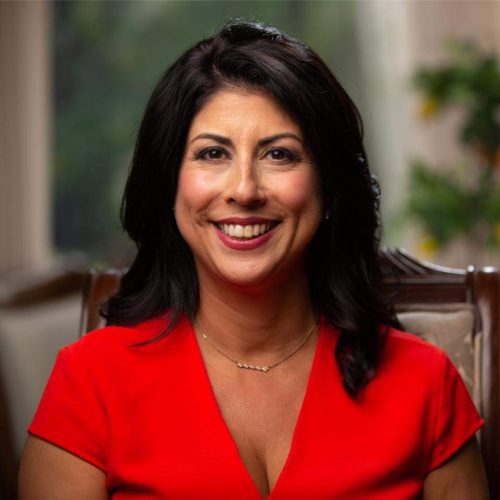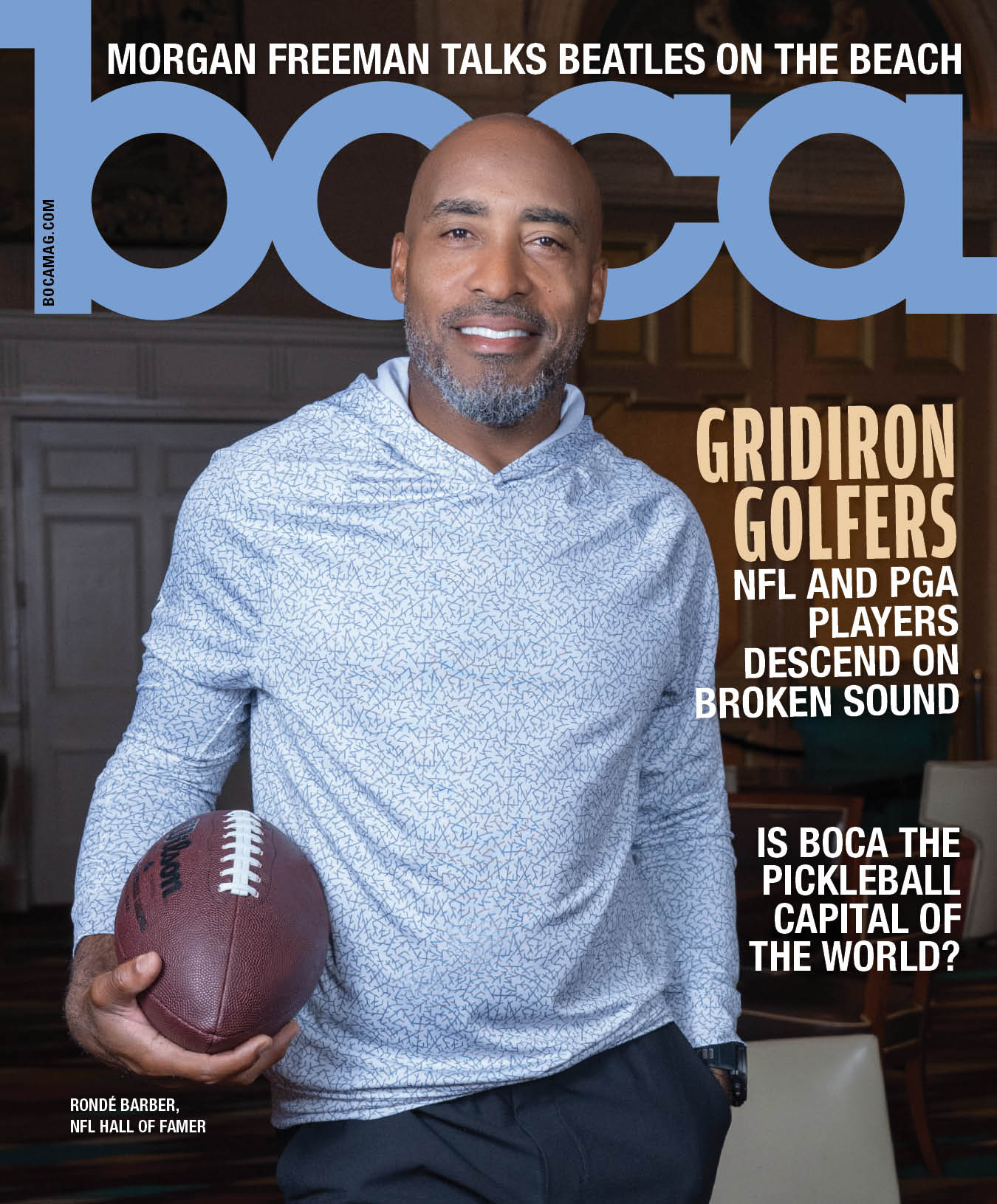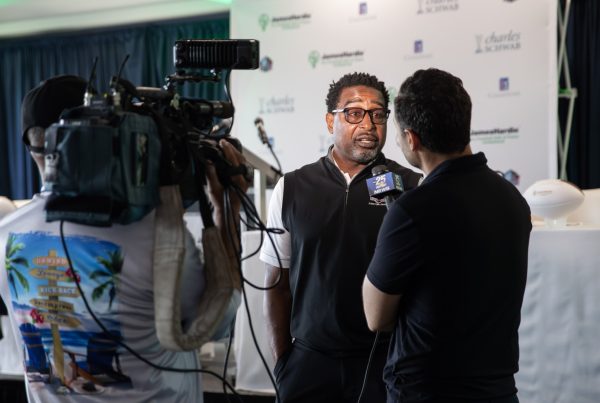Republican Party energy and anti-establishment sentiment combined to produce Delray Beach’s election results.
In the most intense race, former Mayor and City Commissioner Tom Carney defeated Commissioner Ryan Boylston for mayor. Newcomer Thomas Markert edged former Commissioner Jim Chard in the Seat 1 race, while former Commissioner Juli Casale won in Seat 3.
Carney, Casale and Markert made up the slate supported by Mayor Shelly Petrolia, who leaves office this month because of term limits. To show how unique this election was, consider what happened just a year ago.
Angela Burns and Rob Long won their commission races. Long was challenging Casale. Burns was running against Angie Gray. Petrolia backed Casale and Gray. The results left Petrolia alone on the dais to represent her faction.
This year, however, the election came on the same day as the presidential primary. Republicans alone could cast ballots, because the Florida Democratic Party decided that only President Biden would appear on the ballot and Florida has closed primaries. Though local elections are non-partisan, the Palm Beach County Republican Party and GOP-aligned political committees leveraged the presidential primary and made partisanship a big issue.
They didn’t target every city. Boca Raton, for example, drew little attention. Democrat Andy Thomson easily defeated Republican Brian Stenberg to return to the city council.
But the Delray Beach mayoral race drew lots of attention. Carney is a Republican. Boylston is a Democrat. Though official turnout breakdowns aren’t out, Boylston said his campaign staff calculated that Republicans outnumbered Democrats in election-day voting by roughly two to one in a city where Democrats outnumber Republicans.
Other evidence supports the conclusion that Democrats stayed home. The race drew 10,741 votes—roughly 1,200 fewer than in 2021, when Petrolia won a second term. The drop-off was roughly the same in the commission races.
Conventional wisdom was that the presidential primary would boost overall turnout. In fact, that boost seems to have been only among Republicans. When Boylston won a second term three years ago, he got 7,256 votes. If he had just come close to that total this time, he would have won.
For all the GOP involvement, though, a distinctly bipartisan coalition prevailed. Petrolia is a Democrat. So is Casale. Markert is a Republican. Carney had help from former County Commissioner Mary McCarty, a Republican who did prison time on public corruption charges.
McCarty’s brother is Brian Ballard, whose lobbying firm is influential in Tallahassee and Washington. Outside of Boylston’s Tuesday night watch party, a truck blared congratulations to Carney and touted Donald Trump’s candidacy. On Wednesday, Gov. DeSantis praised wins by Republicans in local races, including Delray Beach, and mocked the state Democratic party.
In addition to partisanship, Carney raised the issues of growth and traffic. He called Boylston “a champion of overdevelopment,” saying that Boylston had approved “2,000 units” of housing and referring constantly to Delray Beach as a “village,” not a city.
None of those units, however, will affect the downtown traffic Carney cited. Roughly half will be in Parks at Delray on South Congress Avenue on a site that the city’s comprehensive plan designates for residential and where the developer got roughly half that rules allow.
A year ago, Casale and Gray also ran on the issue of overdevelopment—even though Gray had approved Atlantic Crossing as a commissioner. Carney often invoked the project. But that issue didn’t stick.
Carney, Casale and Markert cast themselves as insurgents. The approach became clear when they skipped the chamber of commerce forum, which until this year had been a must stop for candidates. They aimed their appeal at anti-growth residents and Deep State-obsessed Republicans. They gloried in the fact that almost all the traditional endorsements —the chamber, homeowner associations, the police and fire unions—went to their opponents.
It worked all down the ballot. Even a sensible ballot question that would have combined two advisory boards to streamline the development application process failed.
Early last October, Boylston announced that he already had raised $100,000. His only opponent was former Commissioner Shirley Johnson. Then Carney, Casale and Markert entered the campaign three weeks later, and the dynamic shifted.
Boylston noted that he wound up running not just against Carney but also the Republican Party, a committee led by Petrolia ally Chris Davey, a committee financed by a developer who wants to build shared housing and the right-wing Florida Jolt website, which regularly ran critical articles.
Florida Jolt’s involvement underscores the odd anti-Boylston alliance. Many of those articles came from Tracy Caruso, a Trump supporter who ran against Petrolia in 2021.
“I’m shocked,” said Boylston, who ran mostly on what he correctly said was major progress in recent years on major projects and a record of managed growth. But the owner of a Delray Beach-based marketing firm was philosophical, saying, “I just lost my second job.”
The new commission takes office during the March 28 organizational meeting. Its first regular meeting is April 9.
The first meeting of Delray’s new commission

What will happen at that first meeting? The new majority may want to announce its presence in a dramatic way. At her first meeting as mayor, Petrolia engineered the abolition of the independent community redevelopment agency. The topic had not been on the agenda.
It also will be important to see whether the partisanship of the campaign carries over. National politics almost never arise during commission meetings.
The current commission also wanted Old School Square Center for the Arts to have a role in running the eponymous cultural complex with the Downtown Development Authority. The new commission may change that. Casale and Petrolia voted to end the group’s lease. Two-plus years after that vote, Old School Square remains years from fully reopening.
The effect of the new commission on development
Most likely, development projects of all size will have a steeper climb. Consider the project that went before the commission on March 6.
It called for five duplexes on several parcels at the edge of the Old School Square Historic Arts District. Neighbors supported the project, saying that it would remove aging, unsightly buildings.
Advisory boards rendered a split decision. The historic preservation board recommended denial. The planning and zoning board recommended denial. Contrary to the campaign rhetoric, projects of this size are driving much of the redevelopment action in Delray Beach.
Boylston, Long and Adam Frankel, whose seat Markert will take, voted yes. Burns and Petrolia voted no. Even Petrolia, who has cast herself as the developers’ worst enemy, called the decision “very difficult.”
Under the new commission, such a project probably would fail, correctly or not.
Final action from former Delray commission
The current commission’s last action will come today at a special meeting with a cryptic agenda.
According to the staff memo, the purpose is “appointment of a special investigator.” The memo says nothing more. City Manager Terrence Moore said he could offer no details.
Thomson and Drucker to be sworn in


Thomson and Drucker, who won a second term on Tuesday, will be sworn in when the Boca council holds its organizational meeting on April 1. Though Thomson previously served from 2018 until 2022, he would be eligible to seek a second term in 2027. Drucker will be term limited. Neither Boca Raton nor Delray Beach has elections next year.







